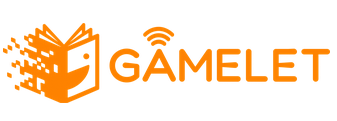GameLet
Promoting reading fluency in secondary schools
Rhine-Waal University of Applied Sciences, together with partners in Germany and Europe, has developed Gamelet, a brand new learning software designed to improve the reading fluency of secondary school pupils. Using a media-based, multilingual approach in combination with gamification elements, GameLet will help address deficits in reading skills, multilingualism and media integration. The project is sponsored by the European Union through the programme ERASMUS+ Strategic Partnerships.
GameLet is based on the “multilingual readers’ theatre” approach, a strategy for developing reading fluency in different languages. Pupils read different texts out loud, preparing themselves as they would for an acting performance (see Kutzelmann et al., 2017). GameLet transforms this concept into a digital readers’ theatre and adds gamification elements to it: pupils are tasked with completing a series of “missions” to help prepare them to read the texts. These educational, engaging missions are an integral part of GameLet’s teaching approach, which is useful for improving reading abilities in the native language as well as foreign languages. The project was motivated in part by the fact that reading fluency is the deciding factor for reading competency (NICHD, 2000), which itself is essential to academic success in other subject areas (Grabe & Stoller, 2011). Studies have shown that pupils in the project partner countries struggle with reading fluency and multilingualism, particularly at the lower secondary level. GameLet addresses this issue by providing educators with a structured, didactically-sound approach and a broad range of software-based tools to motivate pupils and improve their reading fluency. GameLet transforms reading training into an engaging game in which pupils can playfully explore, experiment and improve their reading and media skills together with their peers.
The heart of the GameLet system is a multilingual group podcast in which pupils must read and perform their assigned roles multiple times in different languages. GameLet allows pupils to record their roles in a digital recording studio, in the classroom or at home. GameLet prepares pupils for the podcast in various ways: through a special feedback process, tools for preparing and rehearsing texts, games for practising intonation and pronunciation, and much more. Media-based individual and group learning phases with various reading practice approaches, game-based learning scenarios and materials, as well as a wide range of interactive elements combine to promote better, more fluid reading skills.
Four multiplier events were held in Germany, Portugal and Cyprus between May and July 2021 to present the preliminary results of the project to audiences of current and future educators. The resonance was extremely positive.
Rhine-Waal University of Applied Sciences was responsible for developing the main software architecture behind GameLet and worked with its project partners on the underlying educational concepts and gamification elements.
More Information
Contact
Prof. Dr. Ido Iurgel
Faculty of Communication and Environment
Professor of Media Communication and Computer Science
Telephone: +49 (0) 2842-90825-286
Email: ido.iurgel
@hochschule-rhein-waal.de
Project partners
Pädagogische Hochschule Weingarten (Germany)
University of Minho (Portugal)
Open University Cyprus
Ministry of Education and Culture of Cyprus
as well as a number of schools
Participating researchers at Rhine-Waal University
Anabela Parente (project member, software development)
Dr Digdem Sezen (guest researcher)
Johannes Franzen (student, Media Communication and Computer Science)
Mohamed-Rami Mezghani (student, Communication and Information Engineering)
and other contributors

